Esi Edugyan
The Second Life of Samuel Tyne
The house had always had a famished look to it. Even now when Samuel closed his eyes he could see it leaning, rickety and rain-worn, groaning in the wind. For though hed never once visited it, he believed that strange old mansion must somehow resemble his uncle in its thinness, its severity, its cheerless decay. The house sat on the outskirts of Aster, a town noted for the old-fashioned fellowship between its men. Driving through, one might see a solemn group, patient and thoughtful, sharing a complicit cigarette as the sun set behind the houses. And for a man like Samuel, whose life lacked intimacy, the town seemed the return to the honest era he longed for. But he knew Maud would never move there, and the twins, for the sake of siding with her, would object in their quiet way.
News of the house had arrived in that spring of 1968, an age characterized by its atrocities: the surge of anti-Semitism throughout Poland; the black students killed in South Carolina at a still-segregated bowling alley; the slaughter of Vietnam. It was also an age of assassinations: that year witnessed the deaths of Martin Luther King and Robert Kennedy, and those of less public men who gave their lives for ideas, or for causes, or for no good reason at all. But in Calgary, Alberta, in the far remove of the civil service, Samuel Tyne, a naturally apolitical man, worried only over his private crises. For his world held no future but quiet workdays, no past beyond youth and family life.
Sitting in the darkened shed in his backyard, Samuel examined the broken objects around him. Smoke from the solder filled his nose, his mouth tasting uncomfortably of blood. Snuffing the rod on a scorched pink sponge, he abandoned the antique clock and stood at the dusty window. He dreaded telling Maud about inheriting his uncles house. She was prone to overreacting. Their marriage, plagued by the usual upsets of all conjugal life, had added tensions, for across the sea, their tribes had been deeply scornful of each other for centuries.
Jacobs death had been the first shock, but Samuel deliberated longer over the second: his unexpected inheritance. The first call had come days ago, after dinner, during Samuel and Mauds only shared hour of the day. Already weary of each others company, they settled down on the living room couch with the resignation of people fated to die together. Samuel took up his favourite oak rocker, Maud the beige shag chair, and the clicking of her knitting needles filled the room.
Theyve always been withdrawn, she complained. But this is madness. They wont even talk to me. Their world begins and ends with each other, without a care for anyone else.
Samuel sighed, scrutinizing his wife. She was thin as an iron filing, with a face straight out of a daguerreotype, an antiquated beauty inherited from her father. Her church friends so indulged her worries that Samuel, too, found he had to stomach her complaints good-naturedly. She took everything personally.
Perhaps they did not hear you, he said.
Maud continued to knit in silence, thinking, One does not ask a fool the way to Accra when one has a map in her pocket. The twins really had changed. Only Yvette spoke, and she wasted few words. Maud couldnt understand it. As babies theyd been so different shed corrected the doctors proclamation that they were identical. Now theyd grown so similar she couldnt always say with great authority who was who. But she suspected it was her own fault. The thought of being responsible unsteadied her hands, and the sound of her nervously working needles began to irritate Samuel.
Hed been lost in his own meditations, contemplating what to fix next so that he would not have to think of his stifling job. Officially, Samuel was a government-employed economic forecaster, but when asked lately how he made his living, he lacked the passion to explain. The civil service now seemed an arena for men who woke to find their hopes burnt out. Every day, he too grew disillusioned. Even his children had become a distant noise. Samuel was the oldest forty in the world.
Yet fear of quitting his job did not unnerve him it seemed only practical that he should fear it. What humiliated him was that he failed to quit because he dreaded his wifes wrath.
Agitated, hed begun to run through ways of asking Maud to stop knitting so loudly when the phone rang. People rarely called the house, so Samuel and Maud paused for a moment in their chairs. Finally, Maud dropped her lapful of yarn to the carpet, saying, Ill get it, just like everything else in this house.
Samuel stared at the empty armchair. From the kitchen her voice droned on; he could pick out only the higher words. But they were enough. His chair began to rock, unsummoned, in what seemed like a human, futile move to pacify him. His childhood came back to him, a bitter string of incidents more felt than remembered. And the memories seemed full of such delicate meaning that he might have been experiencing his own death. When he opened his eyes, his wife stood before him, uncomfortable.
Youve heard then, she said in a soft voice.
Uncle Jacob, he said. He stilled his chair.
It took this long for them to find our number. I guess he didnt mention he had family. The spite in her comment sounded crass even to Maud. She went quietly back to her chair. Im sorry, she said.
When did he die?
Night before last. Thats what they think, anyway. He was very stubborn about being left alone in that old house. A neighbour hed been friendly with went to call on him for something, and the front door was open. Just like that. They found him collapsed in a chair. Said he couldnt have been gone more than an hour before they found him. It was Gods grace, too, because the neighbour had only gone to say goodbye before leaving town for a week, and no one else called on Jacob much.
Samuel nodded. Jacob had been a private man. So private that hed cut from his life the man hed raised as his own son. Samuel looked at Mauds hands, a dark knot on her lap.
Good night, he said.
Maud rose with deliberate slowness, giving him time to change his mind, to reach out to her. She stood quite uselessly in the doorway; then after a moment the hall lights went out and he heard her ascend the stairs.
At the brief funeral held in Calgary a mock ceremony, for the body wasnt present Samuel wore the only gift his uncle had ever sent him: an elephantine suit that sulked off his joints and seemed to be doing the grieving for him. Samuel had eschewed a church ceremony, opting instead for a secular gathering in which his friend Halldr Bjornson, a retired speech-writer, mumbled a few lofty clichs over the already-covered grave. Samuel had put his full faith in Jacobs neighbours judgment, choosing not to identify the body, and now he wondered if hed done the wise thing. Maud saw his decision as an attempt to shield off more grief, but Samuel himself was less sure.
In truth, he was a man incapable of coping with sadness. Since the day Jacob had abandoned him for Aster, Samuel had unconsciously struggled to become more like his uncle. He thought often of Jacobs face, which despite a life of labour, or perhaps because of it, had the craggy, aristocratic look of a philosophers. Jacobs speech had even sounded philosophical; praised for his practical wisdom, hed had a hard time believing he wasnt always right. But Samuel only succeeded in imitating Jacob Tynes stubbornness, which went no deeper than Samuels face: he wore a look of dogs mourning with the graveness of a sage, without irony, like an amateur stage actor.
His open melancholy aggravated his boss, for it made Samuel hard to approach. Just a glance into Samuels cubicle gave his co-workers much to gloat about. It seemed a wonder he was such an exacting employee, with the swift but pitiful stride that brought him, disillusioned, to the threshold of every meeting. Yet he was so indispensable in that ministry that his co-workers regretted every slur they flung at him, lest the slights drive him to suicide. For not only would the department collapse without his doting, steady logic to balance it, but it seemed at times that the entire Canadian economy depended on the reluctant, soft-wristed scribbling he did in his green ledger.

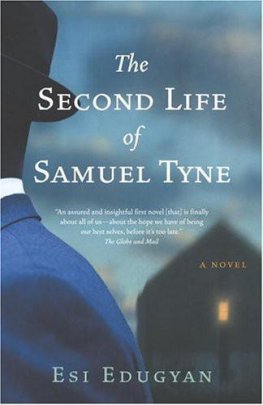
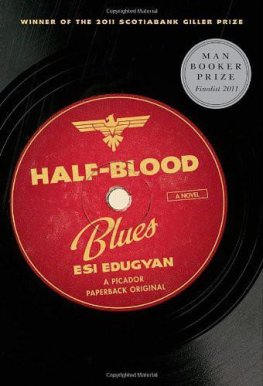
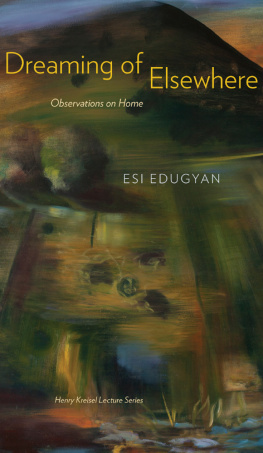

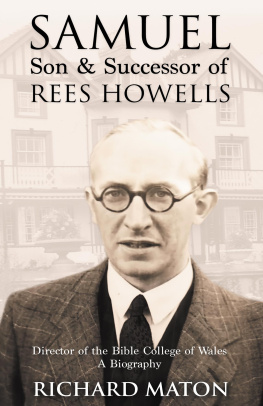

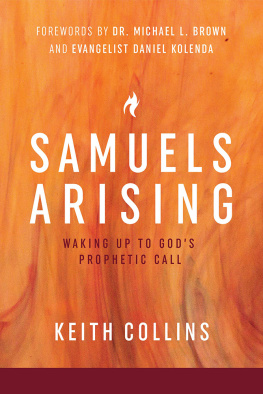
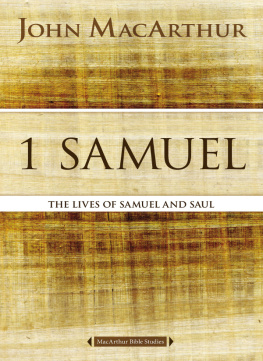
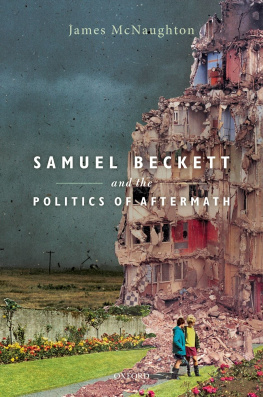
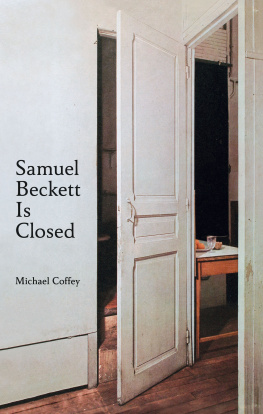
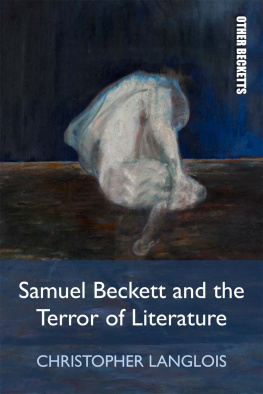
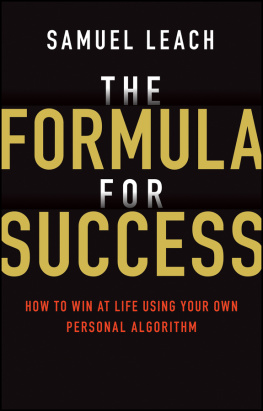
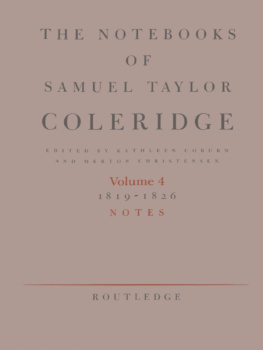

![Samuel Beckett [Samuel Beckett] - The Complete Dramatic Works](/uploads/posts/book/72751/thumbs/samuel-beckett-samuel-beckett-the-complete.jpg)
